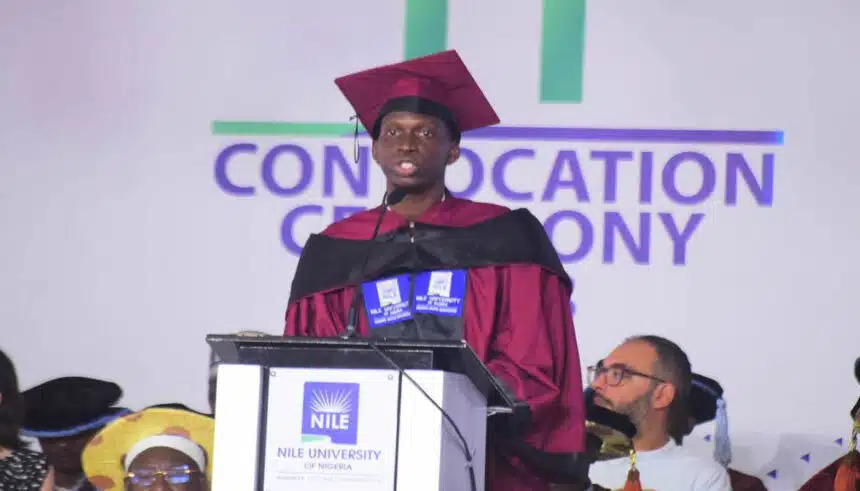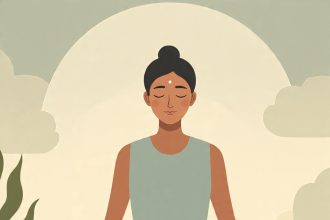At just 23, Oluwabusayo Ifonlaja stepped onto the stage of the Nigerian Law School’s Call to Bar ceremony and into history. Out of more than 7,000 candidates, he didn’t just excel, he emerged as the Overall Best Graduating Student, winning an astonishing 18 awards, including the prestigious Council of Legal Education Star Prize. But behind the accolades and applause is the story of a young man whose journey was carved out by discipline, faith, and unwavering focus.
Raised in the quiet town of Odogbolu in Ikenne Remo, Ogun State, Oluwabusayo’s journey to greatness began with something as simple as a report card. “I still remember when I came first in Nursery 2,” he recalls with a smile. “My parents were so proud.” It was more than a childhood milestone; it marked the start of a pattern—of excellence, persistence, and being the kind of student who would go on to win ‘Boy of the Year’ at his primary school’s graduation ceremony.
“Education and character were non-negotiable values in my home. My dad didn’t buy me toys. Books were my toys.”
His earliest dreams oscillated from doctor to engineer to even footballer (a dream his father famously discouraged with a cane). But through the shifting ambitions of boyhood, one image stayed constant: the lawyer.
“In our community, lawyers were the voices for the voiceless,” he says. “Their confidence, their presence… I admired that. For me, law became more than a profession. It became a calling.”
That calling led him to Nile University in Abuja, where he graduated with a perfect CGPA of 5.0. From there, the next natural step was the Nigerian Law School, Lagos Campus—a place many describe as a crucible for future legal minds.
“It’s not just intense; it’s transformative,” Oluwabusayo says. “The first four weeks were pure chaos. Everything moves fast. If you don’t adjust quickly, you drown.” And adjust he did. His routine became militant in structure. Wake up. Read before class. Arrive hours early. Attend class. Join group discussions. Study at the library. Return to his room by 7:15 p.m., and study until midnight. “Weekends weren’t for resting either. They were for mastering the gaps.”
There was no room for half-measures. “I aimed for First Class from day one,” he says. “I didn’t want to leave anything to chance.” That determination saw him dominating leaderboards on LawSchoolPaddi, a prep app for Law School students. Classmates started calling him “BGS”—Best Graduating Student—long before the official results were out.
But with ambition came sacrifices. “I gave up hobbies. I gave up rest. I gave up weekends,” he says. “There was no break. I had to keep going—because one tiny slip could mean losing a First Class.” As a group leader and active student, he was juggling responsibilities most people never saw. “The emotional pressure is real. You’re trying to be excellent while carrying the weight of expectations.”
So, how does one keep going in such an emotionally taxing environment?
For Oluwabusayo, the answer was simple: faith. “There were nights I felt like I’d break under the pressure. Prayer reminded me I wasn’t alone.” His support system—family, friends, study mates—became a lifeline. “We cried, laughed, studied, and carried each other through.”
And it worked. On that day in July 2025, with his family watching in the crowd and tears pricking his eyes, Oluwabusayo stepped forward to collect the Star Prize for Academic Excellence. “That moment… having my parents beside me on stage… it was everything,” he says softly.
It was a full-circle moment for the boy who once got scolded for sneaking out to play football, now standing as a legal prodigy.
Oluwabusayo is clear-eyed about what comes next. “This isn’t the end. It’s just the beginning,” he says. He hopes to use his success as a platform to advocate for change in legal education—starting with reforms in curriculum design. “Our schools are good with theory. But law isn’t just about books. It’s about people, courtrooms, businesses, technology. We need more hands-on training, more mentorship embedded into our system.”
He believes legal education should produce lawyers who aren’t just brilliant in exams, but competent in practice. “Moot courts and legal clinics shouldn’t be extras. They should be central.”
With 18 awards under his belt, including six from the Lagos Campus and four external ones—it’s clear that Oluwabusayo has not just studied law. He has lived it.
When asked what award meant the most, his answer was immediate. “The Council of Legal Education Star Prize. Not just because of its prestige, but because I received it with my parents beside me. That moment honoured all the sacrifices we made.”










